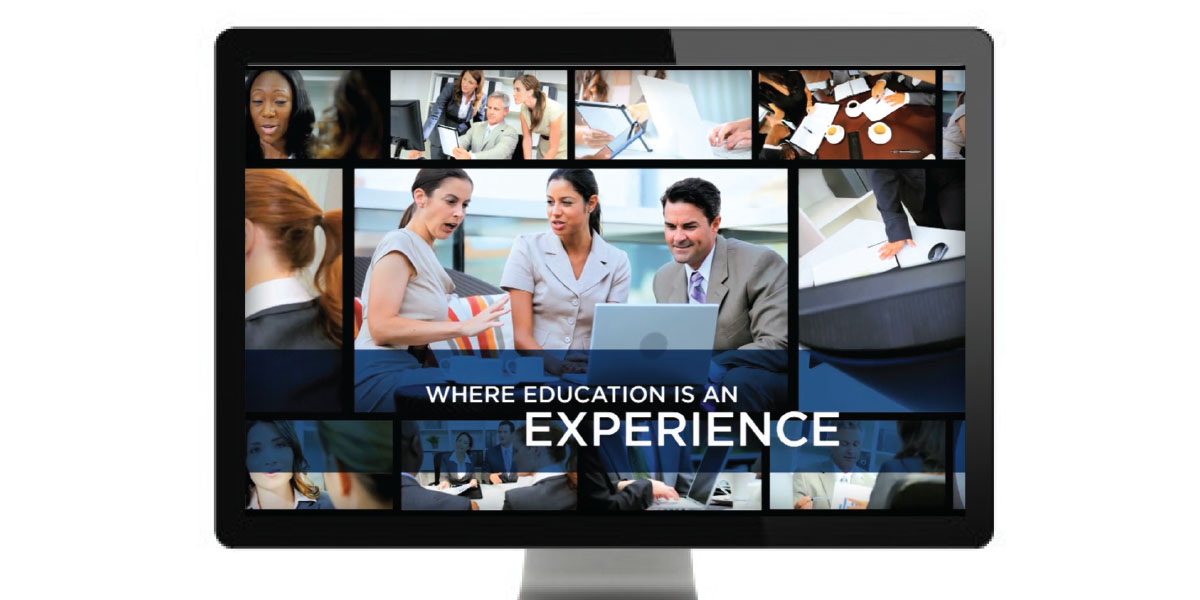New Videos in the Finance and Facilities Leadership Series
Many institutions are dealing with aging structures and energy inefficiency on their campuses. NACUBO’s on-demand series—Finance and Facilities Leadership: Win-Win Strategies—will highlight how the business office can plan and execute to improve the campus. The series will also cover the ways in which different campuses have successfully built, maintained, and renovated facilities to improve deferred maintenance, increase energy efficiency, and advance sustainability.
In the recently released video Bending the Deferred Maintenance Curve: The Value of Whole-Building Energy Retrofits, Wendell Brase, vice chancellor, administrative and business services, at the University of California, Irvine, discusses UCI’s success in implementing whole-building retrofits as a means to eliminate deferred maintenance and reduce energy costs on a building-by-building basis. This includes planning to prevent future problems; increasing the energy factor of the exterior envelope; developing just-in-time mechanical and electrical systems; and providing tips on how to gather and present effective information to acquire funding.
In addition, Turning Deferred Maintenance Challenges Into Savings, scheduled to be released this month, will feature Michelle Smith, capital planning and management green building coordinator at the University of Vermont, Burlington. In this video, Smith will discuss concerted efforts on her campus to systematically reduce deferred maintenance and increase energy savings.
Other videos in the series include A Facilities Primer; Strengthening University Environmental Leadership; Food Recovery Network … How Campuses Can Fight Waste and Feed People; and Definition and Strategies for Sustainability.
Each 30-minute video, part of an initiative of NACUBO’s Sustainability Advisory Panel, is free to members. To access these videos, visit the On-demand section of the “Distance Learning” page at www.nacubo.org.
To read more about deferred maintenance see “The Download on Upkeep” in the December 2015 issue of Business Officer magazine.
Financial Planning Webcast Is Now Available On-Demand
In the webcast, Strategic Financial Planning and Analytics, James Hurley, vice president of budget and planning, Northwestern University; Peri Pierone, president, Axiom EPM; and Sue Menditto, director of accounting policy, NACUBO, discussed the attributes of modern finance teams that are most important for driving performance.
The panel provided practical tips on how to improve financial processes and discussed the role that they can play in supporting the institution’s goals.
Attendees learned how business partners can take on a strategic role in reporting, budgeting, forecasting, and scenario planning. Speakers also touched on how finance departments can become a “knowledge center” by pairing together financial and other types of data in meaningful ways.
Registrants will have access to the content for one year from the original air date. For further information, visit the “Distance Learning” page at www.nacubo.org.
Share Your Expertise at the 2016 Planning and Budgeting Forum
The NACUBO 2016 Planning and Budgeting Forum program committee is seeking compelling presentations that offer in-depth and practical treatment of current issues facing colleges and universities.
Share your approach, knowledge, and experience in planning, resource allocation, analysis, decision making, or communication by submitting a proposal to present at the Forum to be held September 19–20, in Philadelphia.
We invite you to propose a session that is relevant, innovative, and useful. Share with other business officers what your institution has done to improve services, processes, efficiencies, or the bottom line. Focus on the strategies and tactics that will resonate with a higher education audience. Take advantage of the opportunity to advance the conversation, network with administrative colleagues, and highlight best practices. Topics of interest include program costing and contribution margin, developing campus efficiencies, analytics, benchmarking, responsibility-centered management, effectively communicating financial and budget information, forecasting, achieving strategic institutional objectives, creating and implementing budget systems, and change management.
The call for presentations will remain open until April 8. For more information and proposal guidelines, visit the program’s “Call for Presentations” page.”
At The George Washington University, researchers can concentrate much more on their work now that a new business intelligence tool has significantly cut their administrative burden.
“The Principal Investigator (PI) Dashboard helps our researchers manage their grants and contracts, so that they spend less time on administrative tasks, including tracking how they are doing against their budgets,” says Jelena Roljevic, GW’s assistant vice president, business intelligence, Washington, D.C. “It physically helps them manage their grants more efficiently and allows them to drill down into nitty-gritty details—for example, all the way down to an invoice for equipment they purchased.”
The dashboard replaces transactional and paper reports that lacked specific details and often posted weeks-old results. Principal investigators, department chairs, and deans can now make better and more informed decisions, Roljevic says, because the dashboard provides them with the following analytics:
- A real-time overview of their grant funds, including budgeted items, expenditures versus budget visuals, and spending commitments.
- A drill down to detail by expenditure type.
- Alerts for award end dates, new awards, funding changes, and variances compared to budget.
- Monthly run rate and award labor effort.
Agile Protocols Speed Up the Process
To develop and manage the project, Roljevic relied on agile Scrum-based methodology, “which allowed us to build the dashboard much more rapidly and with greater functionality than traditional protocols allow.”
According to Roljevic, traditional project management requires employees in functional areas to spell out their specifications and provide their requirements to a technology development team. With today’s sophisticated business intelligence features, most people in the functional areas lack the technical expertise to develop full-blown requirements.
“Agile is a project management methodology that allows us to deliver a basic product that our customer can react to,” she explains. “Customers first prioritize and tell us what features they want. My team then spends two weeks going through the entire set of activities in typical project management, including analysis, development, and testing. Two weeks later, we show users how we understood their question, and they can reflect and give us their feedback. They can also reprioritize their requirements. If, after two weeks, we meet, and they say, ‘That’s perfect. Can I have it?’ we can deploy that piece of the project to them.”
Roljevic estimates that the dashboard cost between $300,000 and $400,000 and took a development team of five people working full time for about six months to complete. To build interactive visualizations, the technology team added Tableau software to products already in place, including Oracle Financials ERP, Ellucian Banner ERP, IBM Cognos, Informatica, and Data Warehouse.
Although actual savings are hard to calculate, Roljevic believes the university’s 500-plus principal investigators are shaving days off the time they once spent chasing information. “It’s clearly making their lives much easier and enabling coordination with their deans, because now deans and principal investigators are looking at the same data,” she says. “They can now have informed discussions.”
Users seem to agree. “It’s a fantastic tool to keep track of what is going on with your finances as you manage your research,” says Chiara Manzini, assistant professor, department of pharmacology and physiology, School of Medicine and Health Sciences, in a video produced to promote widespread implementation among principal investigators.
Implementation Takes Full Support
For other institutions interested in developing this type of product, Roljevic offers this implementation advice:
- Adopt agile methodology, unless you are working on a technology project in which the requirements are well known and will have few changes.
- Develop close relationships with functional area users. Roljevic admits it was initially difficult to get potential users to attend scheduled meetings. “Our end users are busy people. They didn’t have time to sit in meetings with us, but once they saw that they were influencing what we were building, then they didn’t want to miss any meetings.”
- Solicit support from institution partners. Roljevic compliments the office of vice president for research (OVPR), which is assisting in the implementation effort. If a principal investigator calls the OVPR and asks for a financial report, the official response is: “Have you checked your PI dashboard?” If the PI says, “No, I haven’t; I don’t know how to log in,” the OVPR employee responds: “Let me show you how to log in,” rather than providing the report.
- Implement strong data governance. “A big element of our success is data governance,” says Roljevic. “We worked closely with data stewards in the functional areas to define what we mean when we say ‘actuals’ or ‘academic year.’ Once you are in a dashboard, you can go into the background and see the metadata, how it is defined, and from which source the information is coming. That is fundamental for people to trust the data.”
Roljevic recognizes that some employees may encounter culture shock and have a hard time letting go of manual processing. “They trust their methods no matter how manual and error-prone they are,” she says. “They feel more in control than when they push the button. If you can show them you are pulling the data from the same table [from which] they were pulling it manually, they will start to trust the process.”
SUBMITTED BY Margo Vanover Porter, Locust Grove, Va., who covers higher education business issues for Business Officer.
Nominations are now open for the 2016 NACUBO Awards honoring excellence in innovation, management, and distinguished service. The annual awards are an opportunity to recognize peers, staff, or institutions for best practices and high performance in institutional operations.
Award categories include:
- Distinguished Business Officer.
- Rodney H. Adams Endowment Management Award.
- Daniel D. Robinson Accounting Award.
- Professional Development.
- Rising Star Award.
- Tax Award.
- Innovation Award.
Awards will be presented at the NACUBO 2016 Annual Meeting. Submit nominations by March 7. For more information, visit www.nacubo.org, search “NACUBO Awards 2016” and submit the form to Amy Hemphill, director, member services.




